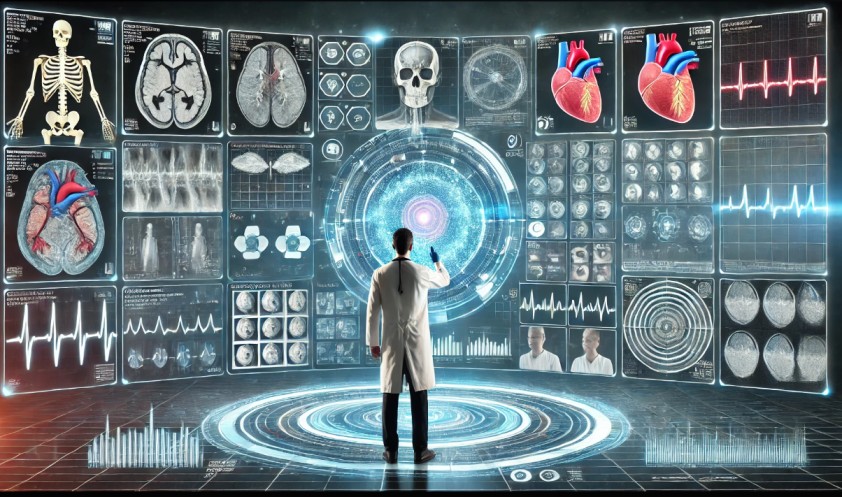The Role of AI in Enhancing Medical Imaging
Medical imaging has long been one of the most important diagnostic tools in healthcare. Whether it’s an X-ray, MRI, CT scan, or ultrasound, imaging allows doctors to see inside the body and identify conditions that may not be immediately apparent from physical examinations alone. However, interpreting these images is both an art and a science, requiring years of training and experience. Even the most skilled radiologists can sometimes miss subtle findings that could lead to a diagnosis. This is where artificial intelligence comes in. Nexarm AI technology is designed to enhance medical imaging by providing real-time analysis that helps radiologists identify abnormalities faster and with greater accuracy.
The Power of AI in Image Recognition
AI excels in pattern recognition, and when it comes to medical imaging, this ability is invaluable. Nexarm’s AI algorithms are trained on thousands of medical images, learning to recognize even the smallest anomalies that may indicate a disease. Whether it’s a tumor, a fracture, or a vascular abnormality, AI can highlight areas of concern and ensure that nothing is overlooked. Unlike humans, AI doesn’t suffer from fatigue or cognitive overload, meaning that it can maintain a high level of accuracy even after hours of reviewing images. This is especially important in high-volume radiology departments, where time and accuracy are critical.

Real-Time Insights for Faster Diagnoses
One of the most exciting aspects of AI-enhanced imaging is the ability to provide real-time insights. Traditionally, doctors would wait for a radiologist to review images and provide a report before making a diagnosis. This process could take hours or even days, depending on the complexity of the case and the workload of the radiology department. Nexarm changes this by offering instant analysis that highlights key findings as soon as the image is captured. This allows doctors to make faster diagnoses and begin treatment earlier, which can be life-saving in emergency situations.
Reducing Errors in Imaging
Despite the best efforts of radiologists, diagnostic errors in imaging are not uncommon. These errors can lead to missed diagnoses, inappropriate treatments, and poor patient outcomes. Nexarm’s AI platform helps to reduce these errors by acting as a second set of eyes, flagging potential issues that may require further review. This is particularly useful in cases where abnormalities are subtle or difficult to detect, such as early-stage cancers or tiny fractures. By providing an additional layer of scrutiny, Nexarm ensures that nothing is missed.
Applications Across Specialties
The benefits of AI-enhanced imaging extend across multiple medical specialties. In oncology, for example, AI can be used to identify tumors at an earlier stage, improving the chances of successful treatment. In orthopedics, AI can assist in detecting fractures or joint abnormalities that may not be immediately visible. Cardiologists can use AI to assess heart function, identifying blockages or irregularities that could indicate cardiovascular disease. Regardless of the specialty, AI offers valuable insights that can improve diagnostic accuracy and patient outcomes.
Challenges and Ethical Considerations
As with any new technology, there are challenges and ethical considerations to address. One concern is the potential for over-reliance on AI, with doctors becoming too dependent on the technology and losing some of their own diagnostic skills. Additionally, AI systems must be transparent, meaning that doctors and patients should understand how the algorithms reach their conclusions. There is also the issue of data privacy, as AI requires access to large amounts of patient data to function effectively. Nexarm is committed to addressing these concerns by ensuring that our AI tools are used responsibly, with a focus on supporting rather than replacing human expertise.
The Future of AI in Medical Imaging
The future of medical imaging is undoubtedly intertwined with AI. As the technology continues to evolve, we will see even greater levels of accuracy, speed, and integration with other diagnostic tools. Nexarm is at the forefront of this innovation, offering solutions that enhance the capabilities of radiologists and improve patient care. Whether it’s detecting early-stage cancer, assessing heart function, or identifying musculoskeletal issues, AI is transforming the way we approach medical imaging. As we move forward, our goal at Nexarm is to continue developing AI-driven tools that help doctors make better, faster, and more informed decisions.
